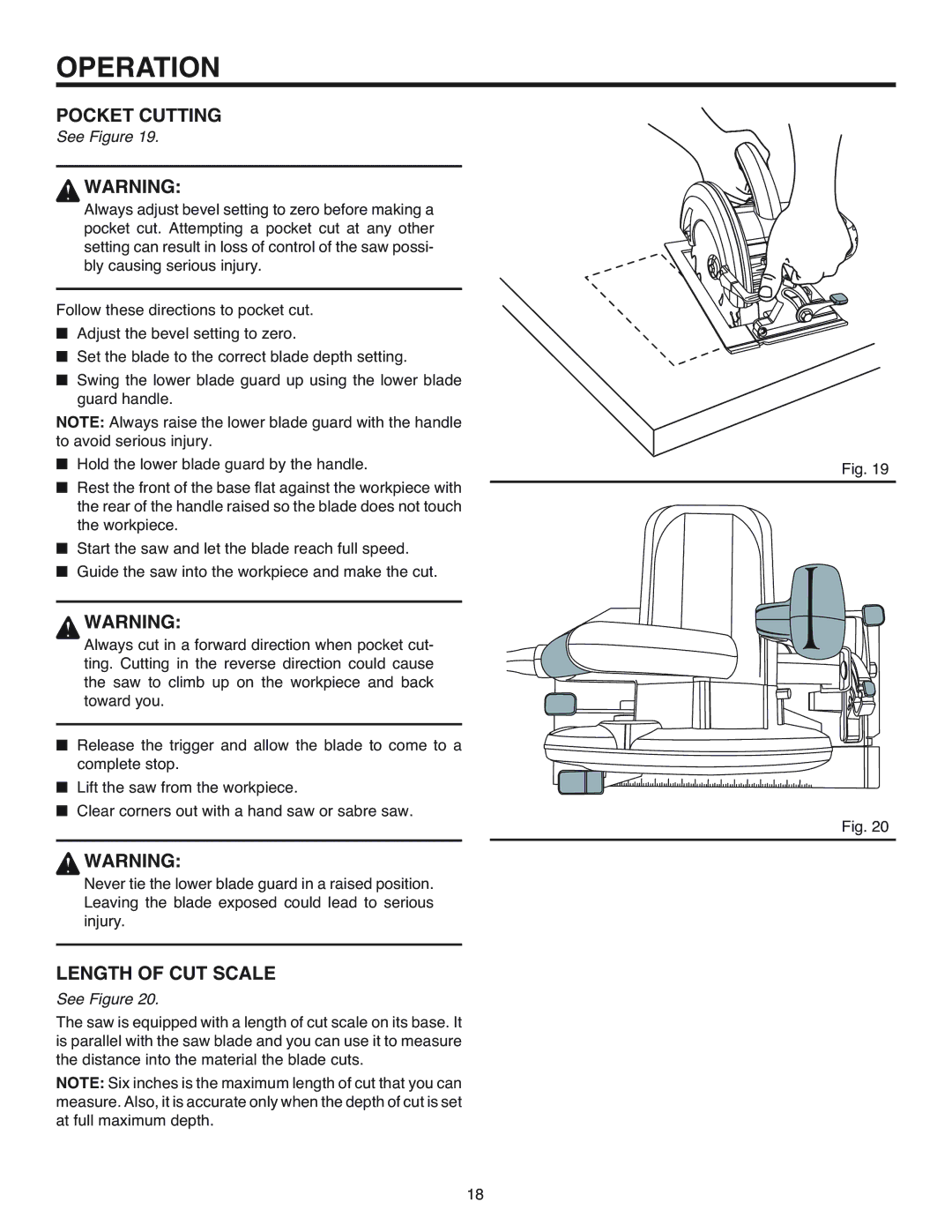
OPERATION
POCKET CUTTING
See Figure 19.
![]() WARNING:
WARNING:
Always adjust bevel setting to zero before making a pocket cut. Attempting a pocket cut at any other setting can result in loss of control of the saw possi- bly causing serious injury.
Follow these directions to pocket cut.
■Adjust the bevel setting to zero.
■Set the blade to the correct blade depth setting.
■Swing the lower blade guard up using the lower blade guard handle.
NOTE: Always raise the lower blade guard with the handle to avoid serious injury.
■Hold the lower blade guard by the handle.
■Rest the front of the base flat against the workpiece with the rear of the handle raised so the blade does not touch the workpiece.
■Start the saw and let the blade reach full speed.
■Guide the saw into the workpiece and make the cut.
![]() WARNING:
WARNING:
Always cut in a forward direction when pocket cut- ting. Cutting in the reverse direction could cause the saw to climb up on the workpiece and back toward you.
■Release the trigger and allow the blade to come to a complete stop.
■Lift the saw from the workpiece.
■Clear corners out with a hand saw or sabre saw.
![]() WARNING:
WARNING:
Never tie the lower blade guard in a raised position. Leaving the blade exposed could lead to serious injury.
LENGTH OF CUT SCALE
See Figure 20.
The saw is equipped with a length of cut scale on its base. It is parallel with the saw blade and you can use it to measure the distance into the material the blade cuts.
NOTE: Six inches is the maximum length of cut that you can measure. Also, it is accurate only when the depth of cut is set at full maximum depth.
Fig. 19
Fig. 20
18
